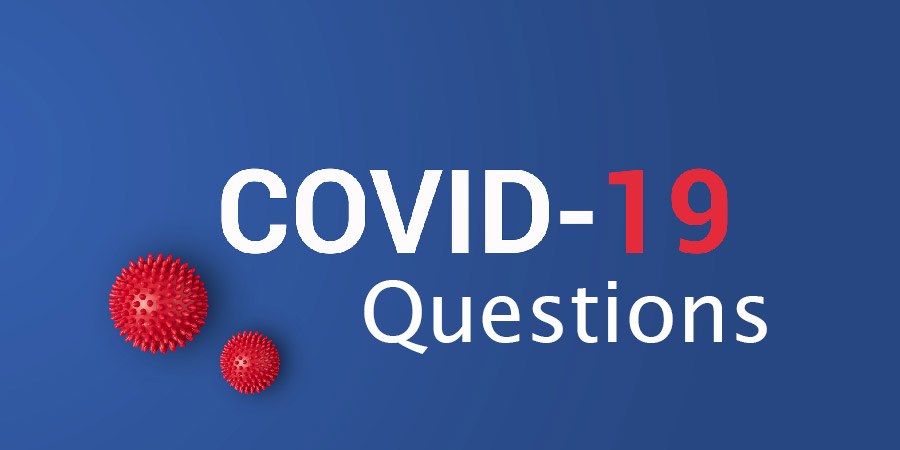Questions We All Have During COVID-19
March 20, 2020
During this time, it can feel as if information is flying in left and right. It’s all over social media, email, and more. We know this can make things difficult for you to find factual and resourceful answers to your questions – therefore, we’ve detailed some of the most common questions we’ve been hearing and sought out our medical professionals for the answers.
How do I care for someone with COVID-19 and keep myself safe?
Be sure to limit close interaction with the infected person as much as possible and wash your hands regularly – especially after coming in close contact with him or her. It is also important to disinfect the areas that your loved one touches. To reduce the number of droplets transferred to the environment around you, the infected person should wear a mask. However, a mask is not recommended in low-risk situations for those trying to prevent themselves from contracting the infection.
Is it safe for my children to play outside?
It is safe for children (and adults) to go outside as long as there is a limit to the number of people in the group. Be sure to practice social distancing if you are going to visit parks, playgrounds, and outdoor fields, etc. Children can (and should!) continue playing in the yard an engaging in exercise activities. If you do not feel comfortable sending your child outside, look for fun activities on YouTube such as yoga, dance, or even stretching exercises.
Is my diagnostic procedure/preventative screening (mammogram, colonoscopy, etc.) cancelled? How do I find out?
The best way to find out the status of your scheduled diagnostic procedure or preventative screening (mammogram, colonoscopy, yearly physical, etc.) is to call the doctor’s office directly. Each healthcare organization and offices may have different protocols for how they are handling these types of appointments. Therefore, to be safe, it is best to call the office directly.
How can I help the community around me?
First, you can help by ensuring that you are protecting yourself and those around you. This means staying in your home and monitoring the amount of time you are in the public to reduce the risk of spreading the virus. It is very difficult to tell whether someone who isn’t having symptoms or who has recovered and is no longer having symptoms is able to pass the virus to others. For this reason, we suggest that you avoid coming to the hospital if you are experiencing mild symptoms. Instead, call your primary care provider or the Maryland Coronavirus Hotline at 211.
If I am having symptoms, can I take ibuprofen or Aleve? Or should I stick to Tylenol?
There is really no evidence or data to support avoiding ibuprofen or Aleve. Read this article by The New York Times for more.
If I contract COVID-19, can I still take ACE-Inhibitors or ARBs (lisinopril, losartan, valsartan, and more)?
The consensus among medical professionals is that medications such as ACE-Inhibitors or ARBs are not harmful in the case of a COVID-19 infection and should not be stopped. Read this article by the American College of Cardiology for more.
How can I help others?
GBMC, like all other hospitals, is always welcoming in-kind donations, but is currently restricted on the number of visitors. If you have N95 masks or other supplies, please call 443-849-2773 before coming to coordinate your donation or fill out this form.
You can also donate to our HealthCare Workers Fund which helps support GBMC staff who are experiencing many different needs during this situation. Two of the most critical needs our employees are facing are childcare and transportation. There is a critical need for equipment for our employees and patients.
*Click here for more information about the coronavirus (COVID-19)*


